"All the problems of the world could be settled easily if men were only willing to think. The trouble is that men very often resort to all sorts of devices in order not to think, because thinking is such hard work."
~ Thomas J. Watson
Wow, look what I dug up!
MANY Years ago, I had the opportunity to e mail Coach Ethan Reeve, one of my mentors, and he dished out some of the most powerful training information as exchanged emails.
Here it is, once again, for your reading pleasure. Please share!
Grab some coffee or a protein shake, read, relax and enjoy!
You can also read the foreword to my book, The Encyclopedia of Underground Strength & Conditioning, written by Coach Reeve. It is awe-inspiring to say the least!
I am grateful to have Coach Reeve as a mentor and I know you will love this interview!
Coach Reeve: Yes, I wrestled at the University of Tennessee from 1973-77. Although I was not an NCAA Champion I was a 4-time Southeastern Conference Champion and a 2-time NCAA All-American. Fortunately, I was privileged to have been an assistant wrestling coach under some great coaches at the University of Tennessee (Gray Simons), Oklahoma State University (Tommy Chesbro), Ohio University (Harry Houska) and Clemson University (Eddie Griffin).
Eventually I landed the Head Wrestling coach position at the University of Tennessee @ Chattanooga where I coached from 1984-1990. We had five Southern Conference Championship teams in six years. I loved coaching wrestling and still miss it.
However, I really enjoy training all sorts of sport athletes. The main thing I enjoyed about coaching wrestling was the training in the wrestling room. That is why it was such an easy transition to strength coaching because I just love training athletes and helping them become champions. Hard, smart work is the answer to success!
Basically, we are at the mercy of the athletes that are given to us by our sport coaches in recruiting. Our job, as strength coaches, is to "maximize" the athletic potential of each and every athlete we work with. We trust our sport coaches to identify the athletes they feel can help our university have success in that particular sport. Sport coaches, like NFL scouts, will look at film and visit the players and see how they perform at practice and in competition.
An athlete can have great results in the "combine" but not perform well in competition. If the athletes do not succeed in their sport under competitive situations then they will be overlooked in the recruiting process no matter how well they test in the strength room or combine. What coaches need are athletes that perform well in competition.
We do not emphasize numbers in testing in the strength room or speed and agility tests. We look for adequate strength, power, speed and athleticism. If the athletes given to us do not meet our standards then it is our job to get them to those minimum standards. It is the athlete's choice to go beyond those standards and succeed at a higher level on the field of competition.
How we break the body and its movements down is like this:
Total Body Power
1. Power Clean - 301 lbs.
Total Body Strength
1. Deadlift - 401 lbs.
2. Power Shrug (Pulls)
Hip and Knee Extension
1. Front Squat - 308 lbs / Back Squat 352 lbs. Both squats are well below parallel!
2. Lunge - 242 lbs for 2+2 RM
Hip Extension Power
1. Hang Clean - 308 lbs.
2. Hang Snatch
Hip Extension Strength
1. Romanian Deadlifts (RDL)
2. Good Mornings
Upper Body Pressing
1. Standing Press-198 lbs.
2. Bench-300 lbs.-325 lbs-350 lbs. (depending on position)
One-Arm Upper Body Pressing
1. DB Bench-(125 lbs. for 5+5RM)
2. KB Standing Press
Upper Body Pulling
1. Chins
2. Bent Rows
We feel it is very important for athletes to be athletic while they are getting stronger and more powerful.
What is athletic?
Great athletes do something that marginal athletes don't do. The great athletes make the skill of their sport look easy. How does this happen?
Thousands upon thousands of repetitions of the skill of their sport at the speed needed in competition!
We believe in making our athletes athletic by doing athletic lifts instead of isolation lifts during our team workouts.
An athletic skill, like an athletic lift, is the incorporation of all your joints, muscles, tendons and ligaments together in a natural and many times explosive fashion.
Our recommendation to incoming freshmen is to do athletic movements and athletic lifts. Don't be so concerned about the amount of weight right away. Work on technique through a full range of motion and the speed of bar movement.
Learn how to tumble (forward rolls, diving rolls, backward rolls, back rolls to handstands, bear crawls, crab crawls, seat rolls, etc.). Tumbling is one of the best ways to develop kinesthetic and spatial awareness for all sports.
Learn how to do agility drills.
What is agility?
Agility has three main components:
1) change of speed
2) change of direction and...
3) change of levels all within the same drill.
Athletes must know what good position is for an athlete. The athletic position for most stand up power sports is with your hips bent (down), feet shoulder width apart, on the balls of the feet, natural curve in lower back and with knees bent.
One of the worst positions for an athlete (other than a jiu jitsu / grappler) is on their back. What we did with our wrestlers every day in practice is spend at least 5 minutes drilling a Bad to Good Position Drill. This drill entails, on the coaches' whistle, having your athletes go from different bad positions up to their feet in the athletic position while moving their hands and feet when they get there.
Some bad positions are:
1) back
2) belly
3) side
4) butt
5) hands and knees and....
6) knees
The object is to go from the poor position and get to the athletic stance, with motion, as quickly as possible. The slower, less athletic athletes will get there slower.
2) With the experience & knowledge you have gained in the past years as the head strength coach at Wake Forest, what have you learned or implemented differently that you wish you would have done when you had wrestlers in your strength room (for those who don't know, Wake Forest does not have a wrestling program) at your previous coaching positions?
Coach Reeve: We do not have a wrestling program here at Wake Forest. I wish we did! I'm not sure I would have trained wrestlers a whole lot differently than I did back in the 80's. I have a notebook for every one of my six years at UT Chattanooga.
It is a detailed notebook with every practice's lesson plan, minute by minute. It also has my observations of each workout. Within the notebook, prior to the daily lesson plans, is a detailed Master Plan of the teaching progression and drills to incorporate for strength training and wrestling technique.
We had a philosophy the permeated every wrestling drill and competition we had. Everything we did was based on these three elements of our philosophy:
1. Pressure
2. Position
3. Motion
These words were said, by me, to our team maybe 100-200 times at each and every practice. I will explain what their meaning is!
1. Pressure. The wrestler must keep pressure on his opponent every split second of every match he wrestles. This is whether he is on top, bottom, or on his feet! Pressure, pressure, pressure! Unrelenting pressure must be applied.
The wrestler must also be able to handle pressure mentally and physically when it is applied to him.
Referees will make mistakes. The crowd will taunt him. The opposing coach will say negative things at times. The wrestler must maintain his cool. He should never show emotion of any kind! Stone-face and stoic! When you show emotion in competition, the heat of battle, it is compared to a shark smelling blood!
If you display emotion during the battle the shark will smell the blood and attack that weakness.
We taught our wrestlers to search for physical and mental weaknesses in their opponents and attack them! If you are to have success with pressure then you must put all three portions of the philosophy together. And it must be implemented into every drill and scrimmage during practice sessions. There is no way you will pressure in a match without practicing pressure in every drill in practice.
2. Position. If the wrestler applies pressure to his opponent while being in poor position he will surely not have good success. All strength is angle specific. A great wrestler puts himself into positions of strength. This is whether he is on his feet, bottom or top position. Having good position is not just being in an athletic stance. It is his position in relation to his opponent. Cutting distance down so he can work his offensive technique and also be able to have a good defense when his opponent attacks is paramount.
This is true in all sport whether it is strong man competitions, Olympic weightlifting, Power lifting, tennis, golf, football, basketball or wrestling. In the lifting sports it is gravity, resistance and the object to be lifted that is your opponent.
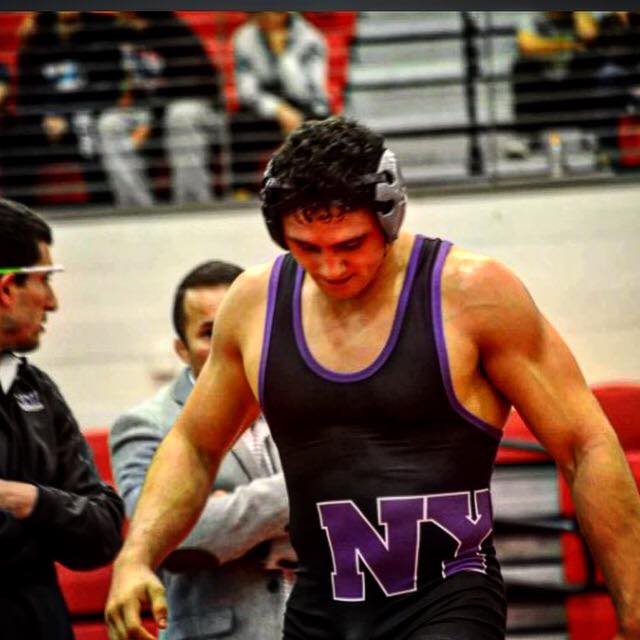
The great wrestler continues putting himself into positions of strength in his sport. This is why being a strong strength room guy is not as important to him. The strength you receive from the strength room will only benefit the athlete if he has paid the price with technique of his sport. There are a lot of wrestlers that don't appear strong.
However, they realize their strength potential in wrestling by putting themselves into positions of strength. Teaching a wrestler how to use his body with total body power and strength lifts will help him use his strength in wrestling.
Out of season we would focus on the power cleans, hang cleans, squats, standing presses, chins, dips, etc. In-season we placed more focus on lifting our partners within the technique of the wrestling drills. That way we hit two birds with one stone. We worked on our strength specific to the sport of wrestling! However, in-season, we still did our lifting two days per week.
3. Motion. A wrestler is not in good position if he cannot move. A wrestler cannot run as fast or move as fast on his knees, butt, back, sides etc. as he can while he is on his feet. Shooting takedowns and staying on your knees will stop your motion. I am not saying you should not shoot to your knees.
However, don't stay there if you cannot finish quickly while there. Learn to hit on the knee and get off of it quickly or work on your takedown technique by not going to your knees. We found we had more success by not allowing our wrestlers to go to their knees on double leg and single leg takedowns. Their technique for the setups and penetration was much better by doing this. We did allow them to go to their knees while doing fireman's carries.
There is one other thing we did at UT Chattanooga that no other wrestling team did that I am aware of. We made our wrestlers bow as they entered and exited the wrestling room. This was not done as some religious sort of thing.
The only clothing we allowed our wrestlers to wear in the room was t-shirt, shorts, jock, socks and shoes! No sweats or rubber gear! We emphasized to our wrestlers that they need to come into every practice with the intent to leave the room in some way better than when they walked in. Did they get better at technique, stronger, better condition, more mentally tough?
Better and better everyday was our motto. A wrestler cannot get better if he knows everything. He must come in with an empty glass to learn and improve. If he walks in with a full glass, if he knows everything, he will not make changes needed to become a champion! Bowing as you enter and exit the room promotes humility. Humility allows the humble to learn and get better!
3) How would you go about training a high school football player who is heavy in body weight but lacks the strength & power for someone his weight? The reason I ask is that I find a good number of high school football players tend to carry extra weight yet are weak / deconditioned for their size.
Coach Reeve: That high school athlete, in our opinion, should work on all qualities of athleticism together: strength, power, speed, anaerobic-endurance, flexibility, balance, mental toughness, spatial and kinesthetic awareness. By doing this the athlete will fit into his body naturally with some changes in his diet. I am not a certified dietician nor do I claim a vast knowledge of nutrition. I know enough to identify folks that need some help with their diet and try to direct them in the right place.
We believe the combination of Olympic lifts (hybrids), Powerlifts, bodyweight calisthenics, dumbbells, kettlebells, speed work twice a week, agility work twice a week, tumbling, plyometrics, static and dynamic stretching will benefit all athletes.
I remember one of our baseball coaches coming up to me at Ohio University telling me that a couple of the pitchers didn't understand how the tumbling or agility ladders would help them as pitchers. I told him that the two pitchers he mentioned were not very good at ladders or tumbling. Also, I informed him to tell the pitchers when they get good at ladders and tumbling they'll understand why we do them. They both went on to have their best seasons that spring.
Everything we do is based on the ability to move. The only way to get good at moving is to move everyday! As the athletes get stronger and more powerful in the strength room they will move faster and more explosively. However, their flexibility or lack of flexibility will be a limiting factor if they don't do both dynamic and static stretching each day.
Static stretching should be done at the end of the workouts or after a dynamic warm-up. We feel it is more important for athletes to spend more time on dynamic flexibilty like: tumbling, hurdle flexibilty drills, form running drills, and agility drills.
What we are trying to develop are athletes that can move more efficiently for sport. They must spend the bulk of their training time working on the technique of their sport in order to be successful! However, they must also work on being more well-rounded athletes. This is where strength coaches come in to play!
The strength coach must also realize that strength and athletic development, by his prescription, is just a piece of the pie. This is why we stress that strength coaches train athletes to be better athletes on the field of competition. They should focus on making their athletes better athletes not so much on getting bigger lift numbers to be posted on the strength room board.
4) What are some things in / out of the weight room that you would discourage football players / wrestlers to do? Are there any training methods / techniques that are used commonly today yet have no carry over to their sport?
Coach Reeve: We tell our athletes and sport coaches that there are many ways to become a champion. Some are more efficient and some are less efficient. We have found many ways to gain strength, power, speed, athleticism and size! We try to incorporate as much variety as possible without compromising our philosophy and efficiency while also delaying boredom.
Weight machines are not used by me or my two assistant strength coaches here at Wake Forest when working with our sport teams. This is part of our philosophy. We are not saying you cannot have success using machines. Of course you can! We just don't train our athletes with machines during the team workouts. We don't discourage our athletes from using machines during their personal "champion" workouts individually. We do have machines in our strength room, just not many.
We prefer training our athletes with total body lifts to develop strength, power and athleticism. In our opinion, using weight machines is less efficient in developing these qualities. Isolation of joints or muscle groups is a less efficient way of training athletes. If the athlete desires, during personal workouts, to do isolation work then we do not discourage this!
Coach Reeve: A major part of our philosophy is the "champion's attitude".
The sport coach has the duty to encourage the "champion's attitude". "Did you do any extra workout today?" he will ask!
The strength coach and sport coach must not design team workouts that will take every bit of energy out of the athletes.
Leave some energy for the "champion" to do his extra workouts. This way the champion can take some ownership in his success. The sport coach and strength coach should design the team workouts to make them difficult enough for the team to have success.
If the strength coach and sport coach designed workouts around the champion then he will find few athletes left to coach. I have had many of these types of champion athletes ask why I don't push the whole team harder.
My answer is "how many athletes would be willing to work like a champion?" Not many!!!
However, by encouraging the "champion's attitude" maybe we can get more athletes doing their "champion" workouts. The key is to get the athlete to "want" to be champion not "pushed" into being a champion.
We push our teams hard enough to win as a team while encouraging the champion's attitude in those individuals that decide to be a champion.
7) As the head strength coach who works closely with the football coaches, how do the coaches at your university & other universities view the combine that high school football coaches compete at?
Coach Reeve: Our football coaching staff will look at results from the combine. However, most importantly, they get to know the football player, his family and his character to see if he fits Wake Forest University. I can't answer for other universities.
I will tell you that combine results are of little value if the football player does not exhibit being a good football player on game day.
From my experience, the NFL scouts feel the same way. They will look at tons of game film. If the player lets up on plays and doesn't play all plays with his "hair on fire" then the scouts will not ask me much about him. We give the NFL scouts strength room results dealing with speed, agility, strength and power. These results don't matter if the player doesn't produce on game day!
Hopefully, this will be of some value to some of the high school football players to make sure they always play hard each and every play.
Thanks, Coach Reeve. This was an amazing interview and I am honored and grateful for your time, guidance and effort!
Coach Reeve: Anytime, Zach! My pleasure. Keep up the great work you do with your athletes!
=============================
Well, I hope you enjoyed this 'Blast from the Past' interview. It was one of the first interviews I ever did for my web site way back in the day, and, to this very day, Coach Reeve remains a great inspiration to me and has always been the most influential Coach on the methods I use today. His philosophy is awesome and his success as a Wrestler, a Wrestling Coach and a Strength Coach and really blew my mind as did his training methods.
I would love to hear your comments on this interview below. Please take a moment and share this with interview via twitter or facebook.
In Strength,
-- Z --
SSPC Certification

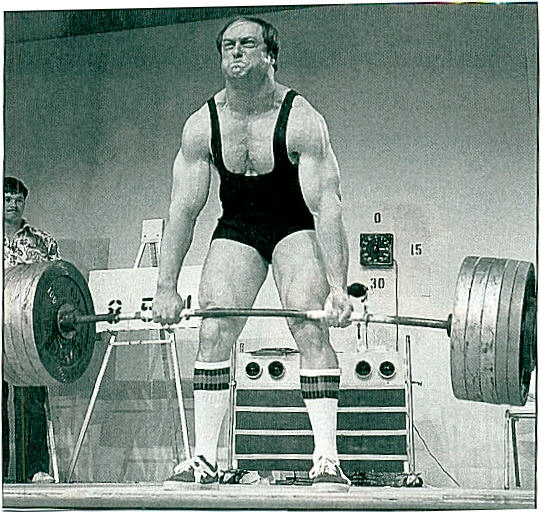
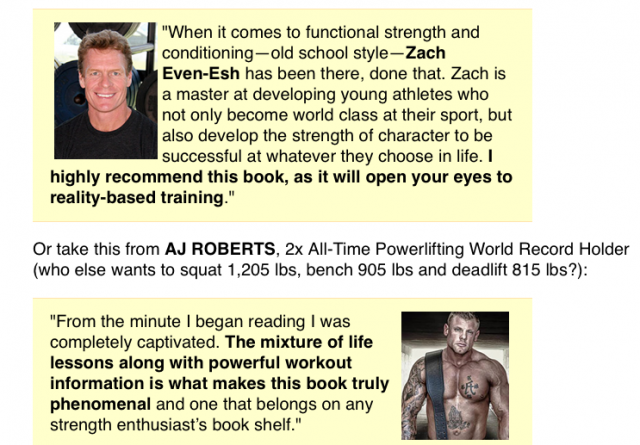
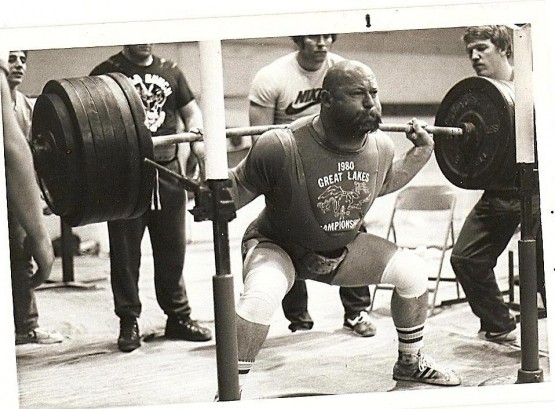
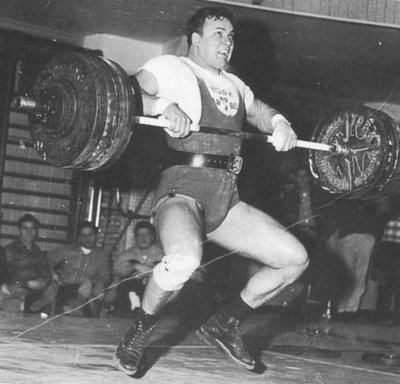
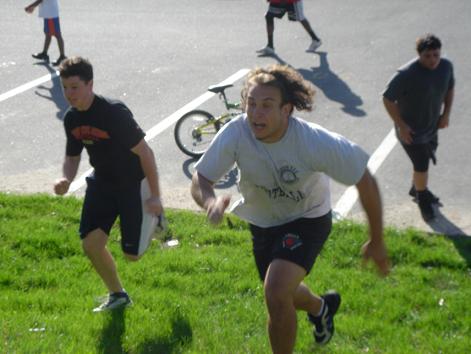
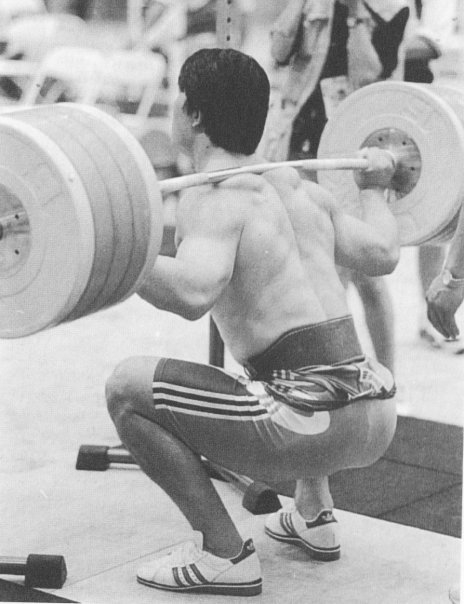
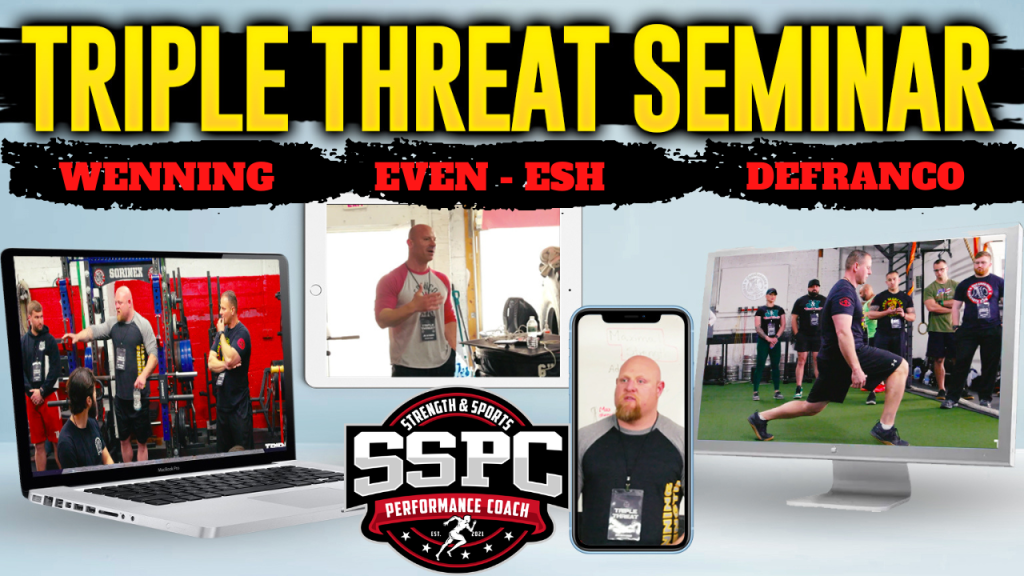
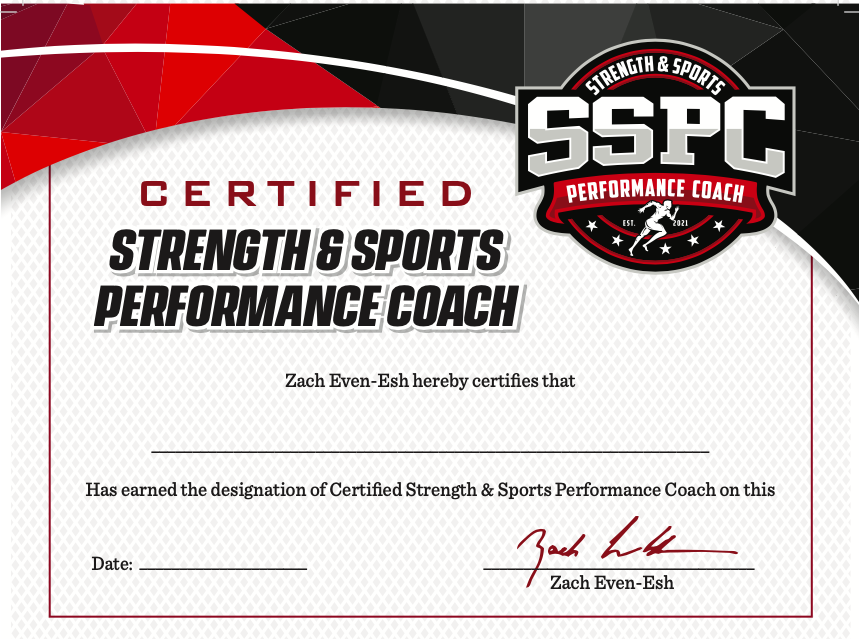
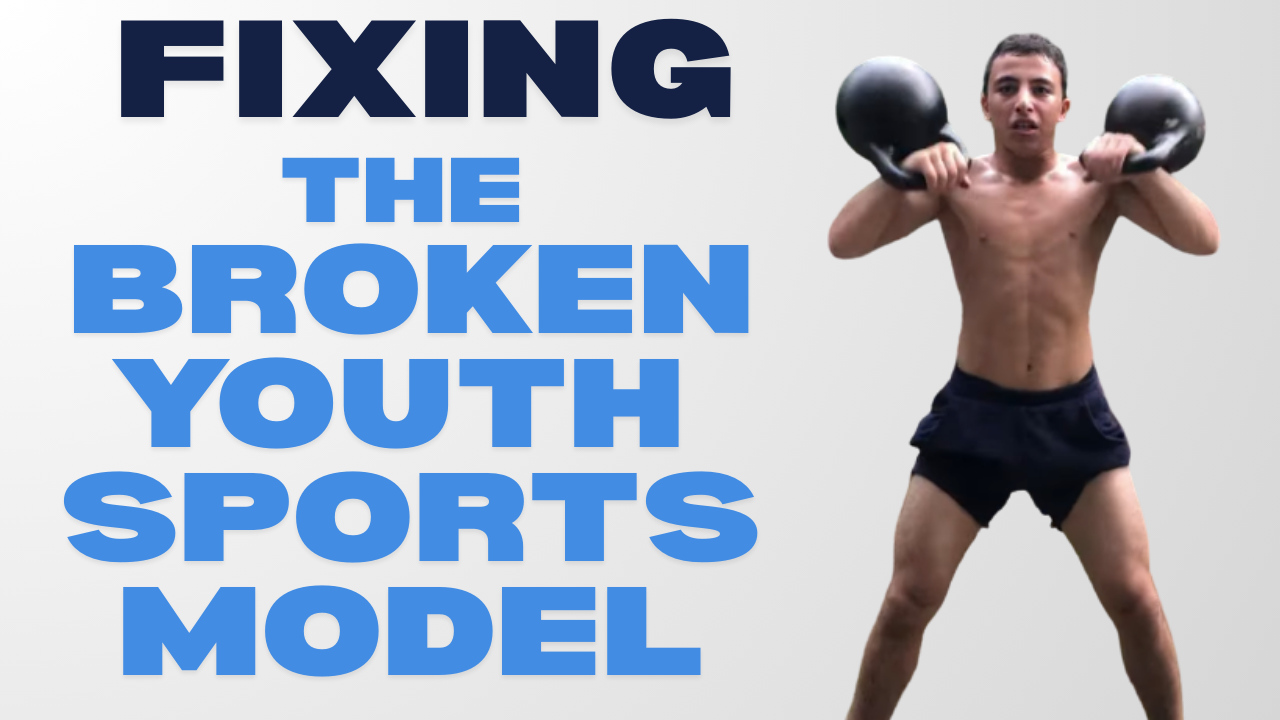
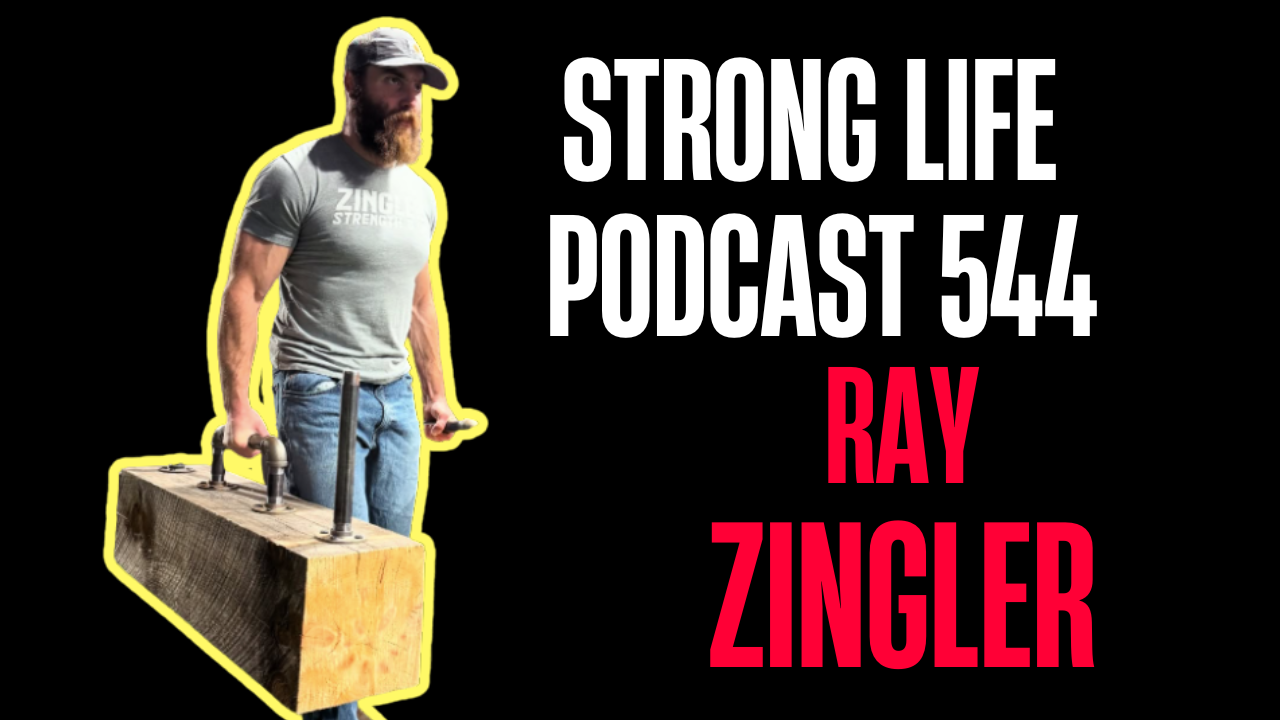
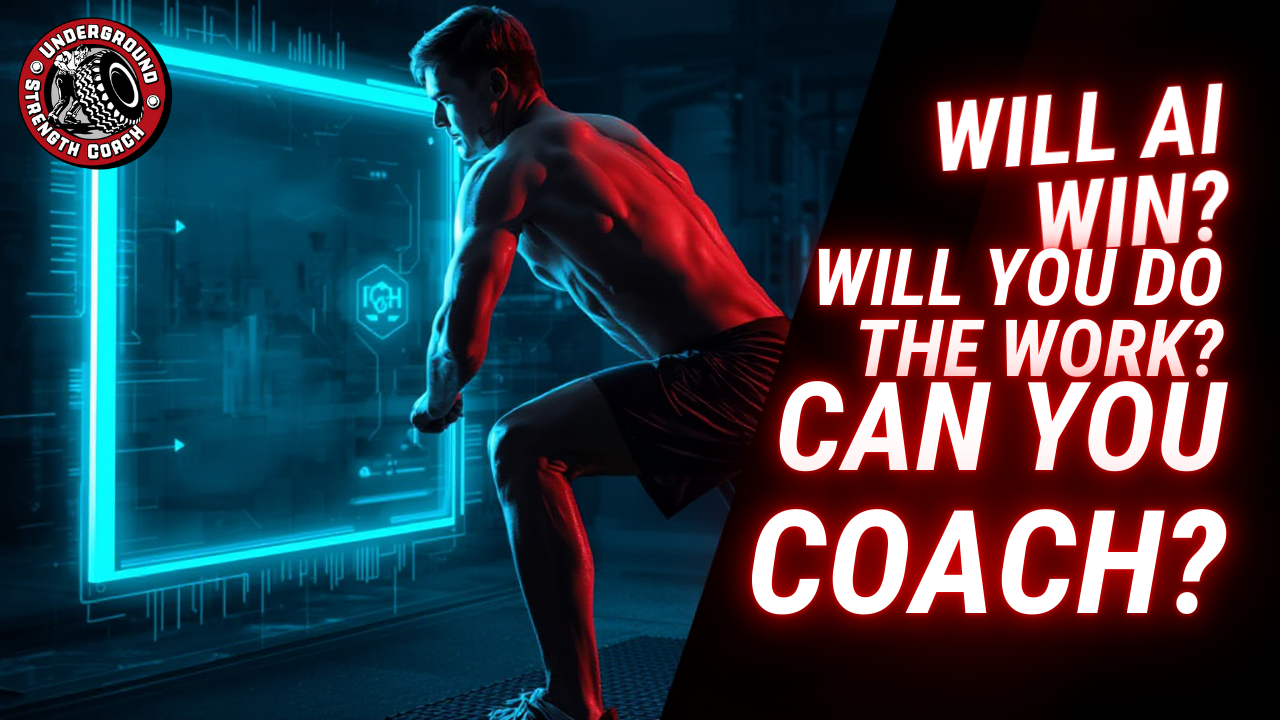
24 Responses
thanks
thx zach 4 posting these articles… it is very inspiring and I ALWAYS need some informations from great minds/experienced peoples
Keep it up
D@VE
My pleasure!! Thanks Coach Reeve, he did the work!
This is a great post!
thanks for sharing.
cheers.
I absolutely love ethan reeve’s stuff. it is always inspiring. the interview from the kit was superb and it is very very rare footage of coach ethan, cause he has no homepage and I only found one more interview at Elitefts.com.
I have once tried Coach Reeves early wrestling strength workout. ten power cleans followed by ten chin-ups and that for ten sets within 25 minutes. It is a PUKER!
greetings and hopefully your knee is geeting better Z,
dominik
Domenik!!!! That Coach Reeve Wrestling Density workout is NASTY!!!!
Solid gold Zach!
I’ve read Coach Reeve’s stuff a few years back, but now I get it at a different level.
I love the idea of encouraging the “Champion” to take ownership of his success.
This was the first interview I ever did with another Coach! Back in the earlier days, Coach Reeve was active on the dragon door forums and would post his daily workouts there.
He posted his personal “density” type workouts and posted the football workouts.
Man, that was an awesome time!
I miss those days!
WOW! Thanks Zach! I was getting so into it…crap I have to work ; ) So, I copied it to a word document so I can read it again and again.
You following your passion blesses others!
Great stuff! That interview is packed with gold nuggets of wisdom!
Zach
That was great!
Thanks Zach, this is a awesome interview and very informative.
I have the audio interview you did with Coach Reeve and that was also awesome!
In my constant thirst for knowledge I checked out the Wake Forest website some time ago and that also has some great info and insight into Coach Reeves training philosphies I would recommend everyone to have a read.
Phil, Coach Reeve goes above and beyond, NO doubt about it!
zach,
thanks for posing that interview !! it is truely amazing in how to motivate with a minimalist approach. movement is the key to everything both on and off the the field or mat.
House, I knew U would love this system of training!
Great interview. Vey inspirational and educational. I am working with young athletes now and I ask them if they want to be champions? They say yes but blamethe team for not being good enough. I tell them that as individuals they make the choice to become a champion. It is how they see themselves that will make the difference. It is all in the work they do.
Thanks for the post Zach.
The Champion Workouts and MOST of my material has been influenced through Coach Reeve!
This is the best Zach, I have read it many times!
Awesome stuff!
On becoming a champion I believe I read it as the coach’s will only push just enough and at the same time encourage the champions attitude. They will not push or force it! Correct?
Last summer I was working with a college wrestler who was getting ready for the Olympic trials. He was extremely focused on his training for about 1 month and then started to feel unmotivated. How many times have you or your athletes experiances times like this?
During our training I could literlay feel his energy into the workouts we were doing and also feel the disconnect during his time of being unmotivated.
This athlete has been known to do this in the past, but none the less was extremely gifted. He won constantly in high school and college. Not sure on his record, but I know he could of wrestled anywhere.
He ended up hurting his shoulder in practice which ultimately took him out of the trials. Very discouraging for me as a coach!
His mind has been back and forth ever since!
Your thoughts on this would be appreciated…
Joe
Joe, I have seen athletes get hurt when they lose that inner drive, it’s ironic, yet at the same time not so ironic.
The Champion knows his “WHY!?”
Quatro Deuce, former Navy SEAL explains this in Underground Strength Conference
==> https://zacheven-esh.com/conference-2012/
WORK WORKS!!! I definately see your training philosophy in this interview with coach Reeve punching through clearly! living the code and a “champions attitude” are a lot alike! Thanks for sharing Zach!
Coach Reeve is the man! He helped me visualize and set goals as an athlete that has carried over into my professional life!
I LOVE to hear this and of course, am NOT surprised. Coach Reeve inspires me to this day! He always will!